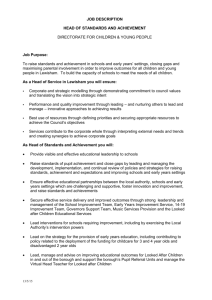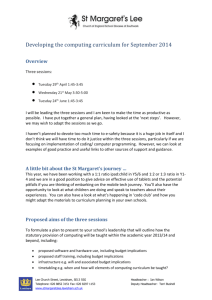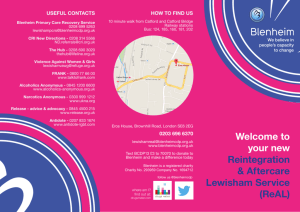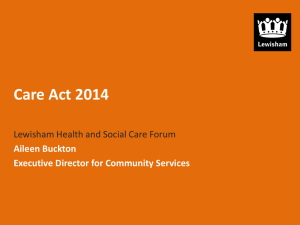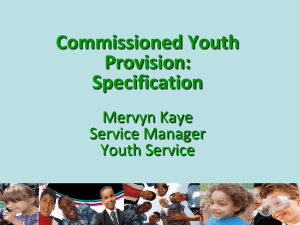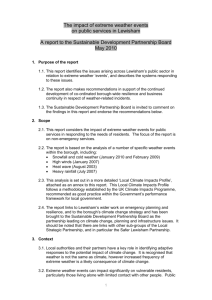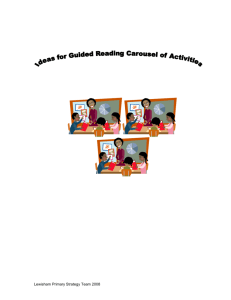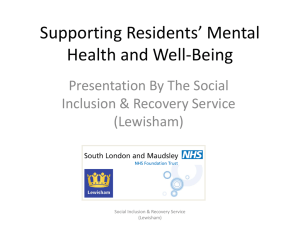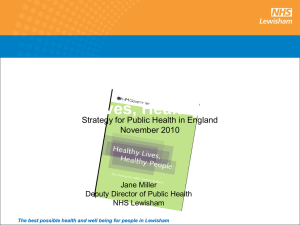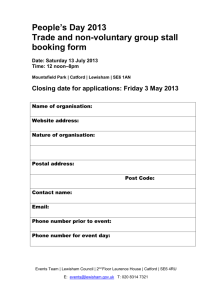Prague presentation - Lewisham Pensioners` Forum
advertisement
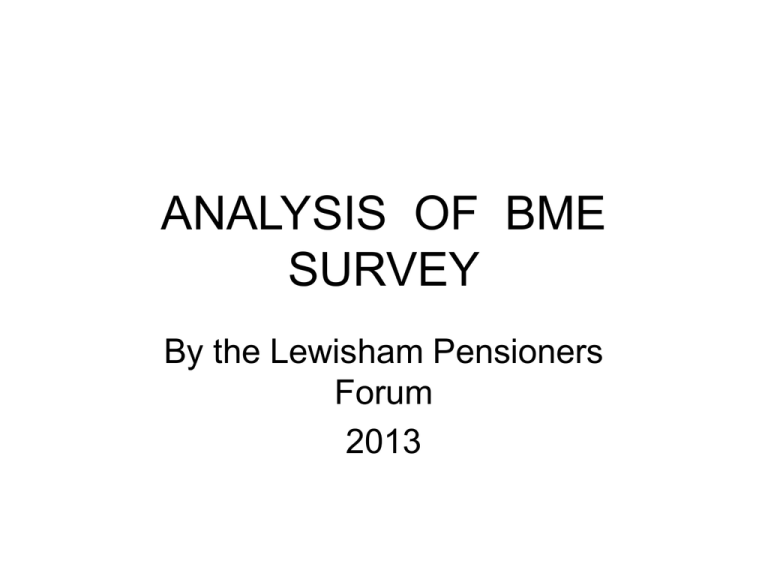
ANALYSIS OF BME SURVEY By the Lewisham Pensioners Forum 2013 HISTORY • There are about 275,888 people living in Lewisham. • Everyone has access to education, employment, healthcare, cultural, sporting and other experiences. • We are diverse in socio-cultural and socioeconomic terms. • Over 170 different languages spoken. • It is the 15th most ethnically diverse local authority in England. History - continued • Black and Minority Ethnic groups comprise 40% of the residents. • Seventy-four percent of the Borough’s 38,106 school pupils are from this group. • The population of over 65s is 26,135 - 9.5%. • The under fives is 22,004 - 8.0%. • LPF is by far the largest campaigning group looking after the interests of the Borough’s older residents. • LPF is now in its 26th year, and has 1,400 History continued • • • • older people from diverse communities. LPF have bi-monthly Forum meetings. Members lobby local decision-making politicians and MPs, and officers of the Council. LPF members meet with local MPs at the House of Commons. LPF members are given an opportunity to learn how to become an effective voice for older people. INTRODUCTION TO THE RESEARCH • Small qualitative survey undertaken by Elizabeth Sclater and Bridgit Sam-Bailey. • Purpose was to establish how BME elders were managing their money once retired. • Process was by a questionnaire (see sample). • Some people thought some questions too personal. So did not answer them. • The results were used to inform the planning of the Financial Fair held on 2 October. Research - continued • Bridgit visited a couple of Day Centres in Southwark. • Communication problems encountered. • Bridgit visited Asian and Tamil groups and a Refugee Centre in Lewisham. • Elisabeth visited the Indo-Chinese group in Lewisham. • Together they visited the Lewisham Pensioners Action Group. BENEFITS OF ATTENDING THE CENTRES THE SURVEY • Small. • Anonymity guaranteed. • Some questions not answered. Too personal. • Quote: They say you have to die in dignity - but you have to live in dignity to know how to die in dignity. Cynthia. RESULTS • Although the results are not statistically significant, we were able to ascertain and appreciate the concerns of the people. • Of the AC and IC communities, over one half had state pensions only. • Five of the respondents received interest from savings and investments. • The majority of AC respondents did not receive council tax benefit. • Fewer than half of the IC respondents did. RESULTS Continued • The Freedom Pass and Winter Fuel were valued the highest. • TV Licence and Energy Efficiency schemes less valued. • Three-quarters of AC respondents owned their own homes. • Fewer than one quarter lived in public housing. • Twenty-two had family living with them, and five lived with their children in their homes. RESULTS Continued • The great majority concerned about bills. • Some respondents had BS or Bank Accounts - some had both. • Nineteen sent money family members. • Limited funds meant they could not afford luxuries or gifts, or to pay for a new boiler or other appliance if it broke down. • Despite the above, most felt they could manage their money if they were careful. • Some did not mention their age or gender. CONCLUSION • Significant conclusions could not be drawn. • Issues facing BMEs are no different from those facing the host community. • Day Centres for the most vulnerable elders are vital. • Meeting bills and replacing large household items are a constant worry. • They cut their clothes according to their cloth. AND FINALLY… AND FINALLY

